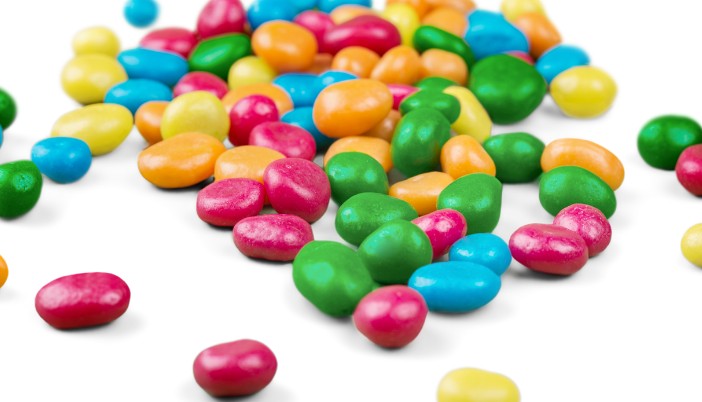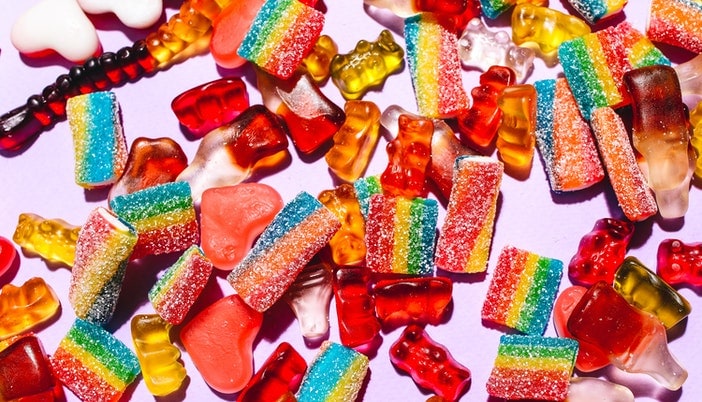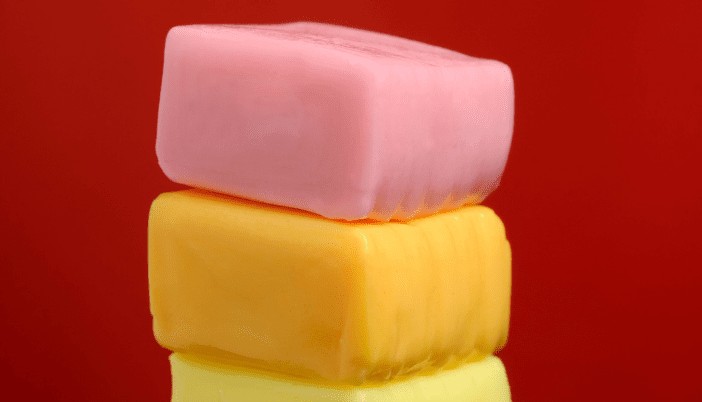English Muffins – Should Vegans Eat Them?
English muffins are a bready breakfast treat, and like many breads it can be easy to assume they don’t contain any animal products. But if you are following a vegan diet, baked goods can be a complicated issue.
Especially when buying brands, food that seems easily free of animal products does not qualify. Butter, milk, eggs and animal lard can end up in breads and bagels, meaning these are no longer vegan friendly.
Fortunately, it is simply to make substitutions, and the market has opened up many more vegan options.
If you are a long-time follower of a vegan diet or just interested, it is essential to understand the history of food items and the journey ingredients go through to understand how vegan they are.
So how are English muffins traditionally made? Are they vegan today?
As an Amazon Associate, I earn from qualifying purchases. The links below may be affiliate links. Please read my disclosure policy for more information.
What are English muffins?
English muffins are small, round and yeast-leavened sourdough breads found commonly in North America and Oceania. They are often eaten as a breakfast food with sweet or savory toppings.
Most popular in North America, they have been consumed in the United States since 1859.
Originally coined by Samuel Bath Thomas, a British emigrant as a “toaster crumpet,” they later became the English muffin we know today. Crumpets are quite a different item, though similar, because they have large holes in the bread for filling to seep into.
In Thomas’s recipe, the omission of the baking soda means the holes stay inside the crumpet, only emerging when split in two.
This recipe, now preserved in Thomas’s English Muffins, is an extremely closely guarded secret. Although he omits the traditional baking soda to create holes internally, otherwise the production is unknown.
What are English muffins made of?
Although the recipe of Thomas’s English Muffins is unknown, the general ingredients are no secret.
The recipe for English muffins, adjusted from the recipe for crumpets, traditionally incorporates animal products, particularly milk and butter. Commercial processes now often replace these ingredients with most cost-friendly alternatives, that are what some vegans call “accidentally” vegan.
As a consequence, vegans may be able to consume some brands of English muffins if they investigate ingredients closely. The safest way for those following a vegan diet can consume English muffins is by baking them at home, so vegans can certify exactly what goes in.
Thomas’s English Muffins contain the following, according to their ingredient list:
Enriched wheat flour (flour, malted barley flour, reduced iron, niacin, thiamin mononitrate (Vitamin B1), riboflavin (vitamin B2), folic acid), water, farina, yeast, salt, sugar, calcium propionate and sorbic acid (to preserve freshness), soybean oil, wheat gluten, grain vinegar, soy lecithin, soy, whey.
Most of these ingredients are vegan. However, whey is a protein derived from milk, meaning these original muffins are unfortunately not vegan.
Other recipes have friendlier ingredients. There are still some specific ingredients to be concerned with, though.
Strict vegans may be concerned with enzymes, Xanthan gum or monoglycerides found in these products, which can sometimes use animal products in their production. But these are often considered a grey area, and have a hard to track production process.
Cautious vegans with an ethical focus may want to consider avoiding foods that contain them at all.
As many vegans are aware, if sugar is used, much sugar in the United States is produced with bone char in the refining process. If you are concerned about this, check which sugar is used in your English muffins.
Organic sugars are unrefined, and will not be bleached with bone char.
When are English muffins not vegan?
There are some core ingredients to look out for when examining ingredients for non-vegan-friendly additives to a recipe. Although some may be obvious, others are more uncommon.
Xanthan gum is a carbohydrate commonly used to emulsify and keep vegan sauces and foods together, for a gummier and more collected taste. It is used similarly to guar gum, and is produced by fermentation from xanthomonas campestris, a common bacterium.
This would normally be considered perfectly vegan. However, some cultures of the bacteria are fed on lactose, a common sugar found in cow’s milk.
Although this would normally be considered somewhat unacceptable for vegans, it is not easy to ascertain what these bacteria are fed as a vegan consumer. It is often considered generally vegan.
Common emulsifiers found in baked goods include lecithin, monoglycerides, and diglycerides. These can all be derived from animal or plant sources, so it can be troubling if you are an ethical vegan to decide which to avoid.
Monoglycerides and diglycerides are derived from triglycerides, the substance that fills up our fat cells.
They are also found in the fat cells of plants and other animals, where these ingredients are sourced from. They are used to bind both fats and water together in baking and in our bodies.
It can be difficult to ascertain the source of these fatty acids unfortunately unless the manufacturer openly shares this information. Many vegans don’t avoid the ingredients for this reason, however strict vegans may choose to avoid them altogether unless it is explicitly stated otherwise on the label.
Lecithin is a generic term for a type of fatty substance derived from both animals and plants. These emulsify the ingredients by binding together both fatty and water-based molecules to help them mix.
This is a useful molecule for both plants and animals, and is found in the tissues of both.
Fortunately, most lecithin is sourced from soy as soy is less likely to pose allergenic problems than its other source, which is from chicken eggs. As labelled on Thomas’s English Muffins, these particular muffins are explicitly using lecithin from soy.
Whey is often used in place of lactose, but is unfortunately not vegan. It is a different protein derived from cow’s milk with a lower lactose content, often used to serve similar purposes in cooking.
Thomas’s English Muffins contains these. Whey isolate, however, is a totally isolated molecule, which is lactose-free for lactose intolerant consumers.
If you are looking for dairy-free products for this reason, keep an eye out for this specific ingredient.
Are English muffins healthy?
Many vegans are health-conscious, adopting the vegan lifestyle to help bolster their personal wellbeing: if that is the case, many of these ingredients are not the healthiest option available.
Most English muffins are not composed of wholegrain flours. They tend to contain bleached or plain flours, which offer less nutritional value and are digested quicker than fibrous flours.
This means they have a higher impact on your glycemic index, increasing your body’s use of insulin which can be damaging over time.
While vegan English muffins are healthier than some other baked goods, they’re not completely without negatives for those concerned about their health. Opt for wholegrain muffins if possible, and add a healthy topping like fruit.
Are English muffins bad for you?
The nutrition of English muffins can vary from brand to brand.
In particular, Thomas’s English Muffins are enriched with additional vitamins and nutrients to increase their nutritional value. This can help with the nutritional profile of a food, but it won’t make a huge difference.
English muffins have a unique texture that is maintained by the use of both cornmeal and plain wheat flour as core ingredients. Neither of these ingredients offer a large amount of nutritional value.
Some English muffins offer whole wheat substitutes, seeds and grains infused into the bread, as well as other fibrous ingredients. There is considerable evidence that regular amounts of fiber not only allow for proper gastrointestinal function, but allow the glucose stored in these items to be released slower over the course of the day.
This reduces the impact of short bursts of refined flours and sugars on blood sugar, as well as allowing you to stay readily supplied with energy throughout the day. This also prevents blood sugar crashes.
Although there are whole wheat options on the market, it is often omitted in favor of texture. If you are following a vegan diet and are struggling to find both a vegan and healthier option, a great choice can be to bake your own.
This allows you to add whole wheat flour to your own tastes, while adding extra healthy additives like seeds and nuts for a superior nutritional profile.
Additionally, your choice of oil is important. Avoid refined oils like extra virgin olive oil, and instead aim for cold pressed olive oil, coconut oil or canola oil.
These all offer a high smoke point for cooking or frying. Olive oil is more suitable for savory cooking, whereas coconut oil is preferred for sweeter, fruitier or more fragrant dishes.
Can I buy vegan English muffins?
If you’re following a vegan diet, it is difficult to find a consistent brand for vegan goods. Sometimes manufacturers will change recipes without warning, or change their distributor or resource for a certain product like sugar.
Today’s vegan staple can be out of the cupboard by tomorrow.
For some vegans, a consideration is also that even when mainstream food manufacturers have vegan offerings, other products they offer are not vegan. Some vegans view this as supporting practices that hurt animals, the environments, or do animal testing.
If you have strong feelings about this aspect of buying brands, the best route is to bake your own goods with raw ingredients.
If you are not much of a baker, it can be wise to get baked goods like English muffins from a local source you trust. Vegan bakeries are popping up everywhere and offer specialized services that big corporations often don’t.
With those caveats aside, if you are looking for a source of vegan English muffins and you cannot bake them yourself, it is also worthwhile to examine any English muffins advertised as organic or gluten-free.
These designations don’t guarantee that animal products are not put in your products, or that they are vegan: but oftentimes these products will contain the same hallmark additions to avoid, like dried milk or whey as common allergens.
Check the ingredients carefully before you buy, and if you aren’t sure where something is sourced from, call the brand’s customer service line.
Can I bake vegan English muffins?
For many vegans, the only way to be certain of what goes into your food is to bake and cook it yourself.
English muffins are fortunately simple to make and require little specialized equipment, provided you have the right ingredients. An oven or a stovetop are recommended for both.
Unbleached, strong white flour is recommended for baking these at home, as well as dried yeast and cornmeal, with cornmeal being the key ingredient in the iconic English muffin texture. Use an oil to substitute for butter, and be sure to use the correct type of oil.
Coconut oil is unsuitable for savory uses of your English muffins. In these cases, use olive oil or canola oil.
Likewise, canola oil and olive oil are suitable for savory uses, but avoid using olive oil for a sweet application of English muffins.
For the best results, follow a recipe optimized for a vegan diet. When adding vegan substitutes to non-vegan recipes, the results are often very different.
If you are an experienced baker, these challenges can be overcome with some trial and error. If not, try to keep it simple.





